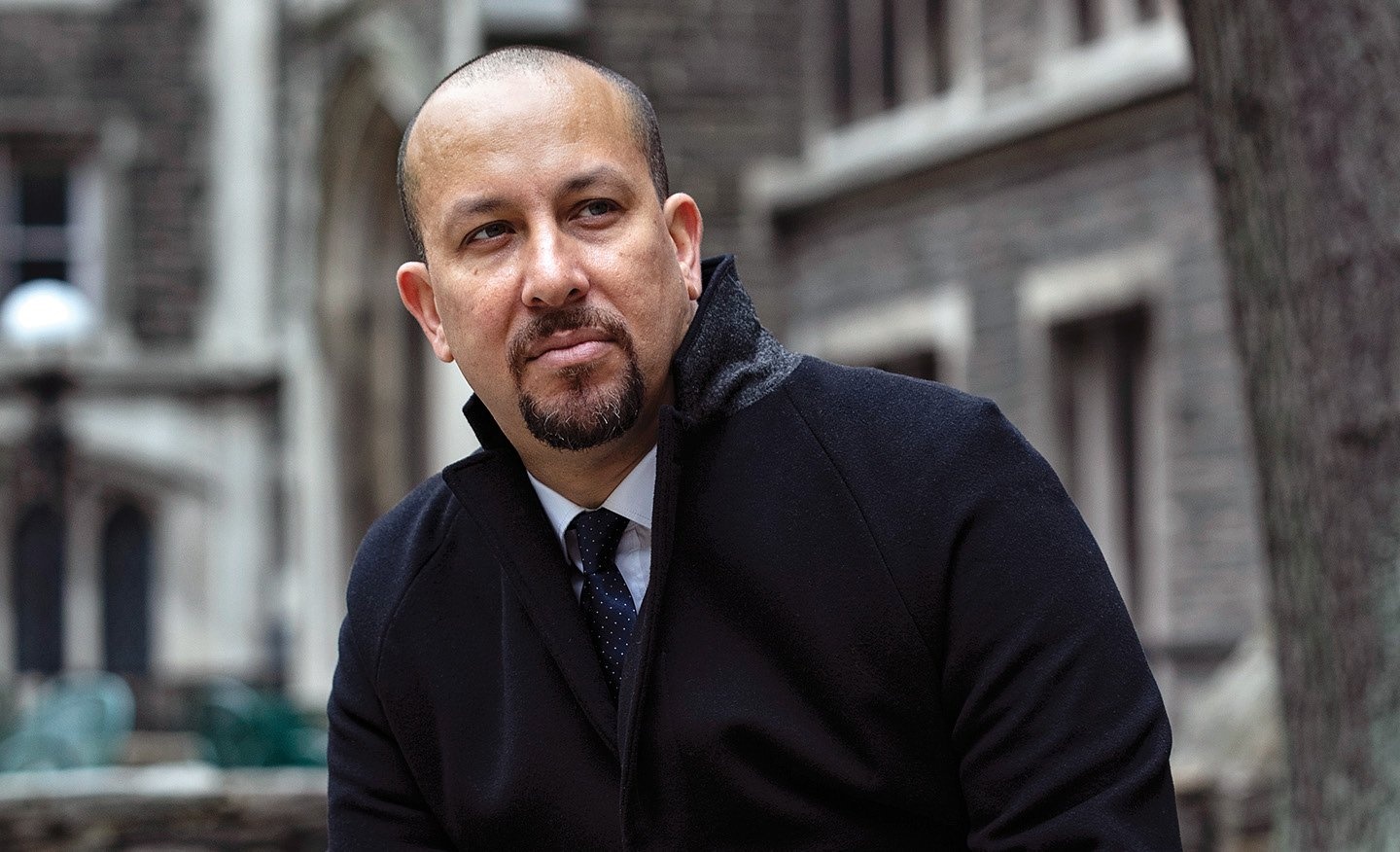Not everyone feels comfortable discussing the most sensitive, hot-button issues of our national moment, but Josef Sorett is here to talk about religion and race.
An associate professor of religion and African American and African diaspora studies and the founding director of the Center on African-American Religion, Sexual Politics and Social Justice (CARSS), Sorett is interested in how ideas about religion inform broader culture and society, especially in black communities. “A deep engagement with the complexities of religion and culture can help us imagine what it means to be human,” he says.
Religion has played a major part in Sorett’s own life. He grew up in and around Boston, coming of age “on a diet of hip-hop and praise and worship music.” At the same time he was enjoying the new sounds of The Sugarhill Gang and Doug E. Fresh, he and his parents began attending a Pentecostal Charismatic church that embraced an especially expressive form of devotion. “I spent my adolescence enmeshed in that context,” he says. “The experience was formative for so many of the questions I try to answer in my research.”
Religion and race came together for Sorett as a student at Oral Roberts University in the early 1990s. “On one hand, the college was organized around a particular set of religious tenets to produce a specific kind of Christian person; at the same time, it had a black student population of about 25 percent,” he says. “The ways in which race was or was not addressed provoked questions that there wasn’t space on campus to answer. I went for a master’s in divinity [at Boston University], in part, to wrestle with questions of theology and race that had not been addressed.”
Sorett continued his studies at Harvard and was in the first cohort of Ph.D. students in African-American studies in fall 2001. “My first week was 9-11,” he says. “It was quite an intense time to be studying religion and race.” After completing his classes, he and his wife moved to Brooklyn and Sorett taught at Medgar Evers College while researching his dissertation. Shortly after graduation a job opened up at Columbia that “fit exactly with my training,” and Sorett joined the faculty in fall 2009.
He started teaching “Introduction to African-American Studies” in 2011, and has seen the class grow from being a small course within the major to becoming part of the Global Core requirement, enrolling more than 100 students per semester. At a time when racism has resurfaced among the biggest concerns in our country, Sorett aims to help students consider the present in light of a much longer history. “I was teaching African-American Studies at the same time that #BlackLivesMatter emerged, and watching groups of students who had come of age in Obama’s aspirational America now wrestling with public incidents of anti-black violence with no legal accountability,” he says. “Every week there was something going on that would seem to derail a nice historical survey.
“The responsibility is to slow students down from whatever the headlines are and challenge our faith in progress,” he continues. “The way in which we narrate American history, especially around race, is often a story of chronological progress to an Obama presidency or through the achievements of the Civil Rights era. Now all the more with the Trump presidency, these things stand in the face of that neat narrative of progress.”
The tension between the scholarly and the activist has long been central to African-American studies, Sorett says, and is at the heart of his work with CARSS. The center advances research, education and engagement around religion, race and sexuality with a focus on black churches and their communities. “It’s very much about bringing together university and community, scholar and activist, theorist and practitioner,” he says.
Sorett published his first book in 2016; Spirit in the Dark: A Religious History of Racial Aesthetics examines how religion has figured in 20th-century debates about black art and culture. He’s now wrapping up his second book, The Holy Holy Black: The Ironies of an African-American Secular, and is editing a collection that grew out of CARSS’s work, The Sexual Politics of Black Churches.
When not at work, Sorett enjoys being a soccer dad to his sons, ages 11 and 8. Sports has always been a big part of his life — he played basketball at Oral Roberts, and recently became a faculty fellow to Columbia’s men’s basketball team.
And in the classroom, Sorett says teaching keeps him on his toes. “You can come with a set agenda or anticipating specific questions, and the students will take you in a completely different direction,” he says. “The classroom can help you see something about your research you hadn’t seen — those lightbulb moments of clarity, when you feel both older and younger all at once.”


